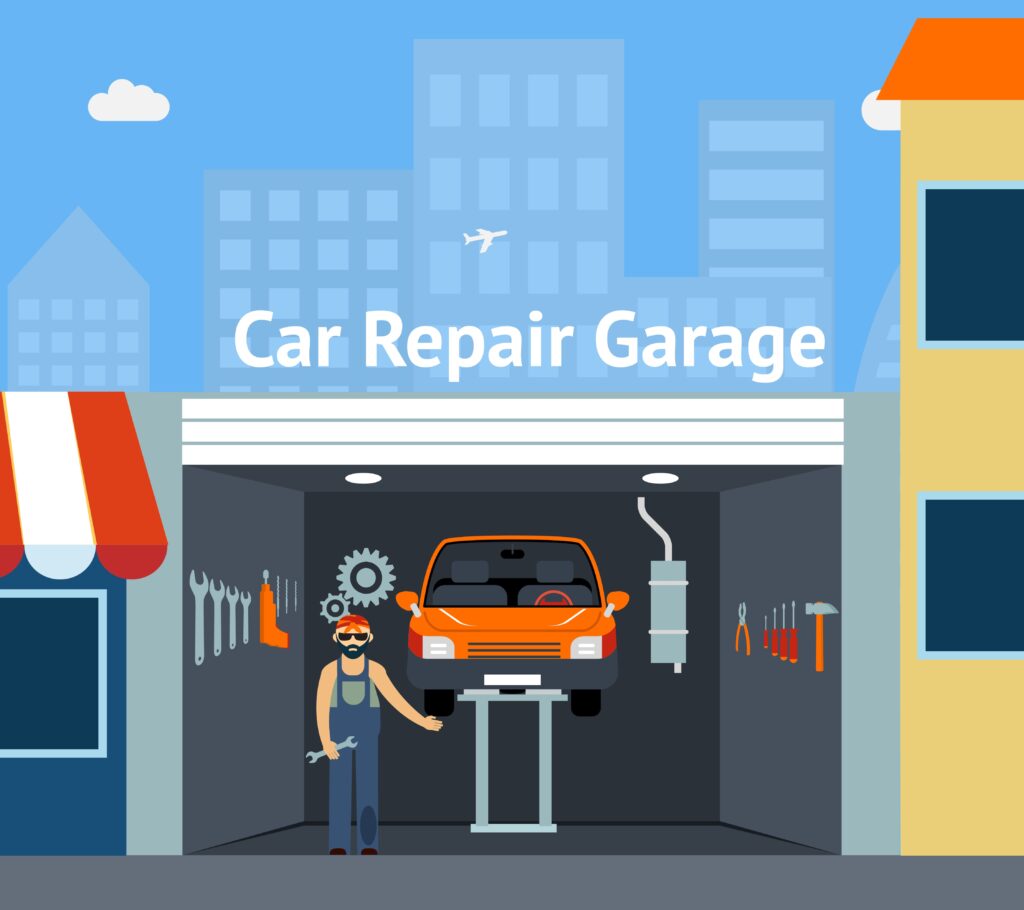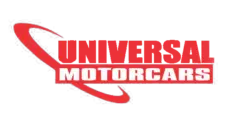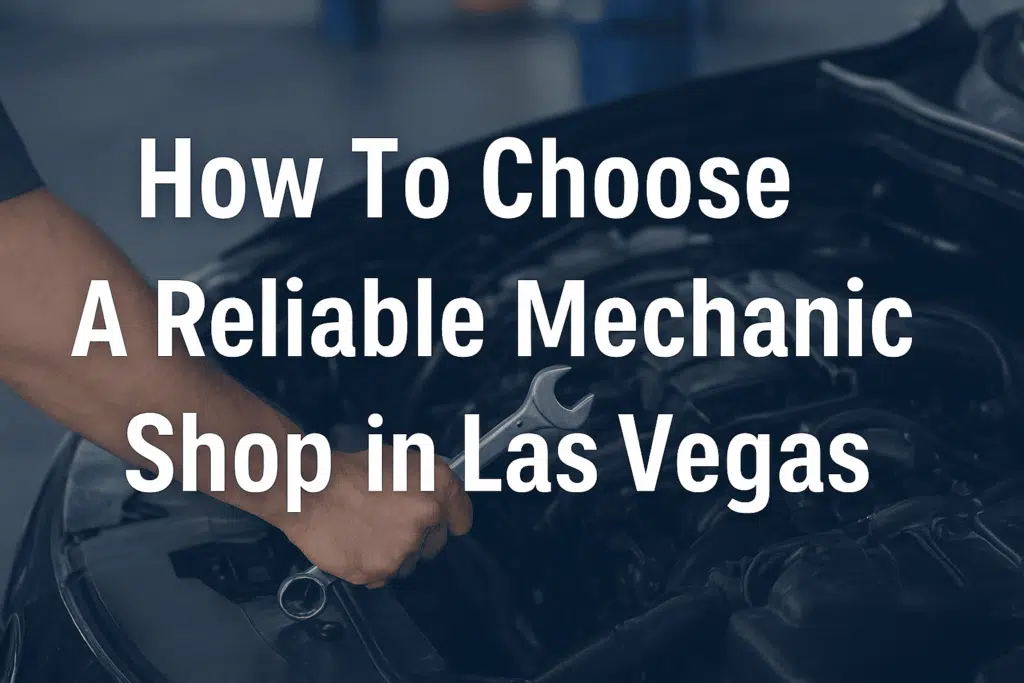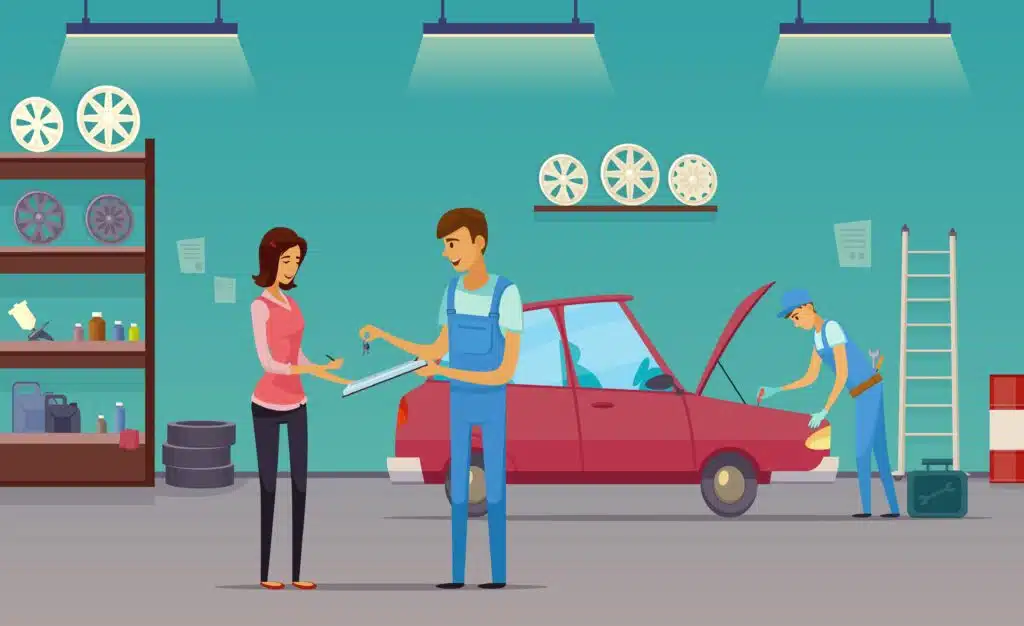Choosing the right place to have your car serviced after a breakdown or collision can save time, money and stress. This guide walks Las Vegas drivers through a practical, step-by-step process for locating a trustworthy auto repair shop, evaluating technicians and getting a clear, no-surprises estimate — so you can get back on the road with confidence.
Why the choice matters
A certified vehicle repair shop is more than a place that swaps parts — it’s where safety, vehicle longevity and resale value are decided. The wrong shop can lead to recurring problems, voided warranties, or poor-quality work. Making an informed selection reduces the risk of uneven repairs, hidden fees, and unnecessary delays.
1 — Confirm technician credentials and training

Look for shops whose technicians hold industry-recognized credentials. Certifications and ongoing education indicate that technicians follow current repair standards:
- ASE certification and manufacturer training are two strong signs of technical competence.
- Collision repair-specific training (I-CAR or equivalent) shows expertise for body and structural work.
Ask the shop which certifications their techs maintain and whether they train for the latest vehicle safety systems.
2 — Inspect tools, facilities and parts policy
A modern shop needs modern tools. Proper diagnostic equipment, calibrated lifts, spray booths and frame straightening benches matter for accurate repairs.
- Verify the shop’s policy on parts: do they use new OEM components, high-quality aftermarket parts, or recycled units?
- Ask about paint matching processes and corrosion prevention steps — these affect long-term finish and durability.
3 — Experience and specialization
Not every shop handles every vehicle equally. Some specialize in European luxury cars, late-model electronics, trucks, or heavy collision repair.
- Choose a facility experienced with your vehicle type — for example, shops that regularly service luxury and performance cars will be more familiar with advanced driver-assist systems and precision paintwork.
- Ask how often the shop handles repairs like yours and whether they can provide before/after photos from similar jobs.
4 — Reputation and real customer feedback
Online reviews and word-of-mouth are powerful tools. Look for patterns, not just isolated ratings:
- Read recent reviews on multiple platforms (search engine listings, Google Business Profile, Yelp). Look for comments about timeliness, communication, and after-repair support.
- Ask the shop for local references or examples of similar repairs. Shops proud of their work will often share client feedback or photo galleries.
5 — Warranty, guarantees, and quality control
A reliable facility stands behind its work. Confirm in writing:
- What warranty is offered on parts and labor? Is it limited, transferable, or lifetime?
- Does the shop perform a post-repair inspection and provide a test drive or alignment check?
A clear, written guarantee protects you if issues arise later.
6 — Transparent pricing and detailed estimates
A trustworthy shop provides an itemized estimate and explains each line:
- Request a written, itemized quote that lists parts, labor hours, paint and other charges.
- Ask how the shop handles supplemental damage discovered during repairs. Will they contact you before proceeding?
- If you’re working with an insurer, confirm whether the shop coordinates directly with the adjuster and how they handle repairs approved by the carrier.
7 — Communication and convenience
Good communication prevents surprises:
- Does the shop assign a point of contact who updates you on progress?
- Ask about turnaround time estimates and whether they offer rental car assistance or shuttle services.
- Verify how they handle your vehicle’s keys, storage, and privacy while the car is in their care.
8 — Red flags to avoid
Watch for warning signs:
- Vague or verbal estimates only, without written details.
- Reluctance to share credentials, warranties, or before/after photos.
- Frequent negative feedback about undisclosed charges or missed deadlines.
How to get a free, no-obligation estimate (step-by-step)
Most reputable shops make it easy to get a clear price — here’s a practical approach:
- Take clear photos: front, rear, both sides, and close-ups of damage; include the VIN line if visible.
- Gather vehicle info: make, model, year, mileage, and any existing mechanical issues.
- Contact several local shops: use online forms or email to submit photos and vehicle details, and request an itemized quote.
- Ask about inspection options: many shops offer either a quick remote estimate from photos or a free in-person inspection for a more accurate quote.
- Compare written estimates: review parts quality, labor hours, warranty terms and proposed timeline. Look beyond price — the cheapest quote isn’t always the best value.
- Confirm insurance coordination: if you’re filing a claim, ask whether the shop will liaise with your insurer and provide the necessary documentation.
Why choosing a local, experienced shop helps Las Vegas drivers
Local facilities that specialize in the Las Vegas market understand regional factors such as desert paint exposure, AC performance issues and towing logistics. A shop with a strong local reputation is usually more motivated to maintain positive community standing through quality repairs and transparent services.
A practical example: what to expect at a reputable local facility
At a well-run repair center you’ll typically find:
- certified technicians
- advanced diagnostic tools
- a clear estimate process
- written guarantees and
- proactive communication.
These shops emphasize quality control steps — factory-calibrated safety system checks, wheel alignment, and final paint inspection — before handing the vehicle back to you.
Next steps — getting your free estimate with confidence
Gather your photos and vehicle details, then reach out to two or three local shops for written quotes. Ask targeted questions about technician credentials, parts, warranty and timeline. If you prefer a single trusted point of contact, a local, well-established shop can coordinate with your insurer and handle the administrative steps on your behalf.
If you’d like, Universal Motorcars (a locally based repair facility in Las Vegas) offers complimentary, no-obligation estimates and will walk you through options for parts, warranties and insurance coordination. Their approach focuses on transparent pricing, certified technicians and documented quality control, so owners know what to expect every step of the way.
Bottom line
Choosing the right repair shop is about protecting your vehicle’s safety, reliability and resale value. By verifying qualifications, reviewing past work, demanding a detailed, written estimate and confirming warranty coverage, you’ll be equipped to select a dependable local facility and get your car back on the road with peace of mind.
FAQs:
- How do I know if a mechanic is overcharging me?
You can spot overcharging if the estimate is vague, parts are unlisted, or the price is much higher than other local shops. Always compare at least two written quotes. - Should I choose a shop recommended by my insurance company?
Insurance-recommended shops can be convenient, but you are not required to use them. It’s best to compare their estimate with an independent verified auto shop. - What certifications should I look for in a Las Vegas mechanic?
Look for ASE-certified technicians, I-CAR training for collision repair, and factory-specific training if you own a luxury or performance vehicle. - Can a local mechanic handle advanced driver-assist system repairs?
Yes, but make sure the shop has modern diagnostic tools and calibration equipment. Not all small shops are equipped for ADAS recalibration.




